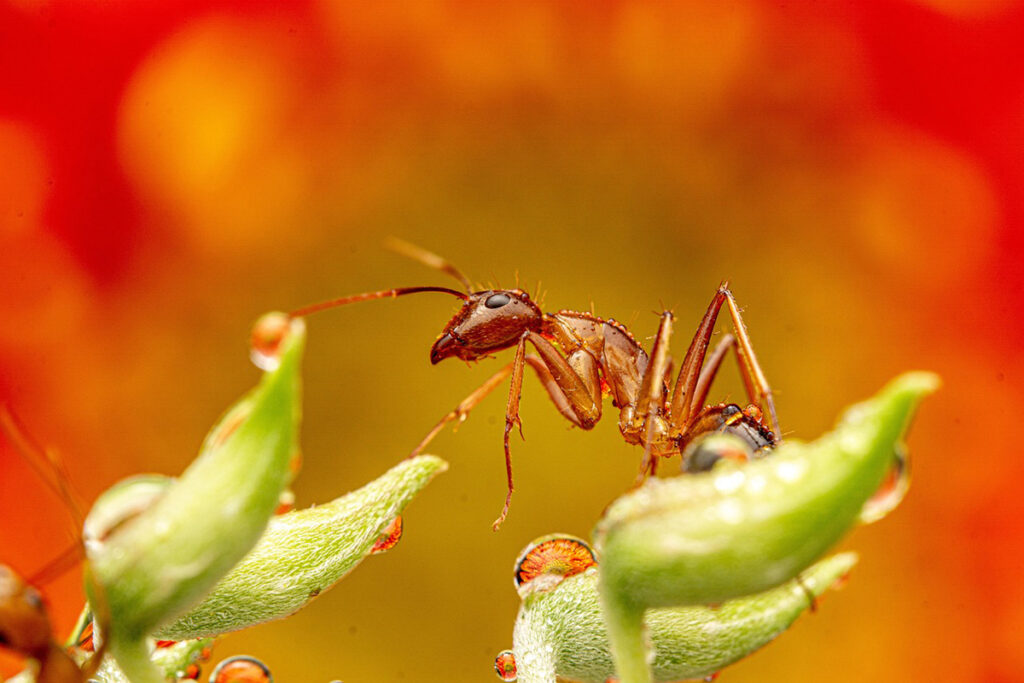For centuries, scientists and the general public have assumed that invertebrates—creatures like worms, ants, and flies—lack the ability to feel pain or emotions. However, new research is reshaping that perspective, with growing evidence suggesting that some invertebrates may experience sensations far beyond simple reflexes. This raises complex ethical and legal questions, particularly as industrial farming of invertebrates becomes more widespread.
Understanding Invertebrate Sentience
The debate over invertebrate sentience has gained momentum as researchers explore whether these animals have conscious experiences. If a worm reacts to being stepped on or an ant responds to finding food with more than just an automatic response, it could mean that these creatures possess some level of awareness. Scientists studying the nervous systems of invertebrates have found that their responses are often more complex than previously assumed.
Studies on bees, for example, reveal that they are not merely stimulus-response organisms. Instead, they make calculated decisions based on context. When given a choice between different food sources, bees have been observed learning from past experiences and modifying their behavior accordingly. Similarly, octopuses demonstrate advanced learning abilities, avoiding painful environments and actively seeking out pain relief, which aligns with the criteria used to determine sentience in vertebrates.
These findings indicate that some invertebrates exhibit behavior that goes beyond instinctual reactions, suggesting that they might possess the capacity to feel pain or discomfort. Scientists have begun developing measurable criteria to assess these experiences, similar to how vertebrate pain is studied.
Legal and Ethical Considerations
As scientific understanding evolves, so too does the legal framework surrounding the treatment of invertebrates. The UK’s Animal Welfare (Sentience) Act 2022 marked a turning point by officially recognizing the sentience of cephalopods (such as octopuses) and decapod crustaceans (such as crabs and lobsters). This recognition requires changes in how these animals are treated in farming, research, and industry.
However, smaller invertebrates, including insects and worms, remain unprotected under current laws. This raises concerns as industrial-scale invertebrate farming continues to expand. Creatures such as prawns, bees, and black soldier flies are increasingly being bred for human and animal consumption, creating ethical dilemmas similar to those faced in traditional livestock farming. If vertebrates like cows and chickens are protected by welfare regulations, should the same consideration be extended to farmed invertebrates?
A Call for Ethical Responsibility
While the science of invertebrate sentience is still evolving, some researchers argue that a precautionary approach is necessary. Given the mounting evidence of complex responses in certain species, it is possible that more invertebrates experience pain and other sensations than previously thought. Establishing humane welfare standards for their farming and treatment could help ensure ethical practices as the industry grows.
As research progresses, scientists are not only studying pain in invertebrates but also exploring whether these animals experience other sensations, such as joy. If further evidence confirms that invertebrates possess conscious experiences, there may be a stronger push for broader legal protections and ethical reforms in the future.
The conversation surrounding invertebrate sentience challenges long-standing assumptions about the boundaries of animal consciousness. As industries adapt and new policies emerge, the way humans interact with these creatures may need to change—recognizing their potential for awareness and ensuring they are treated with consideration and care.


